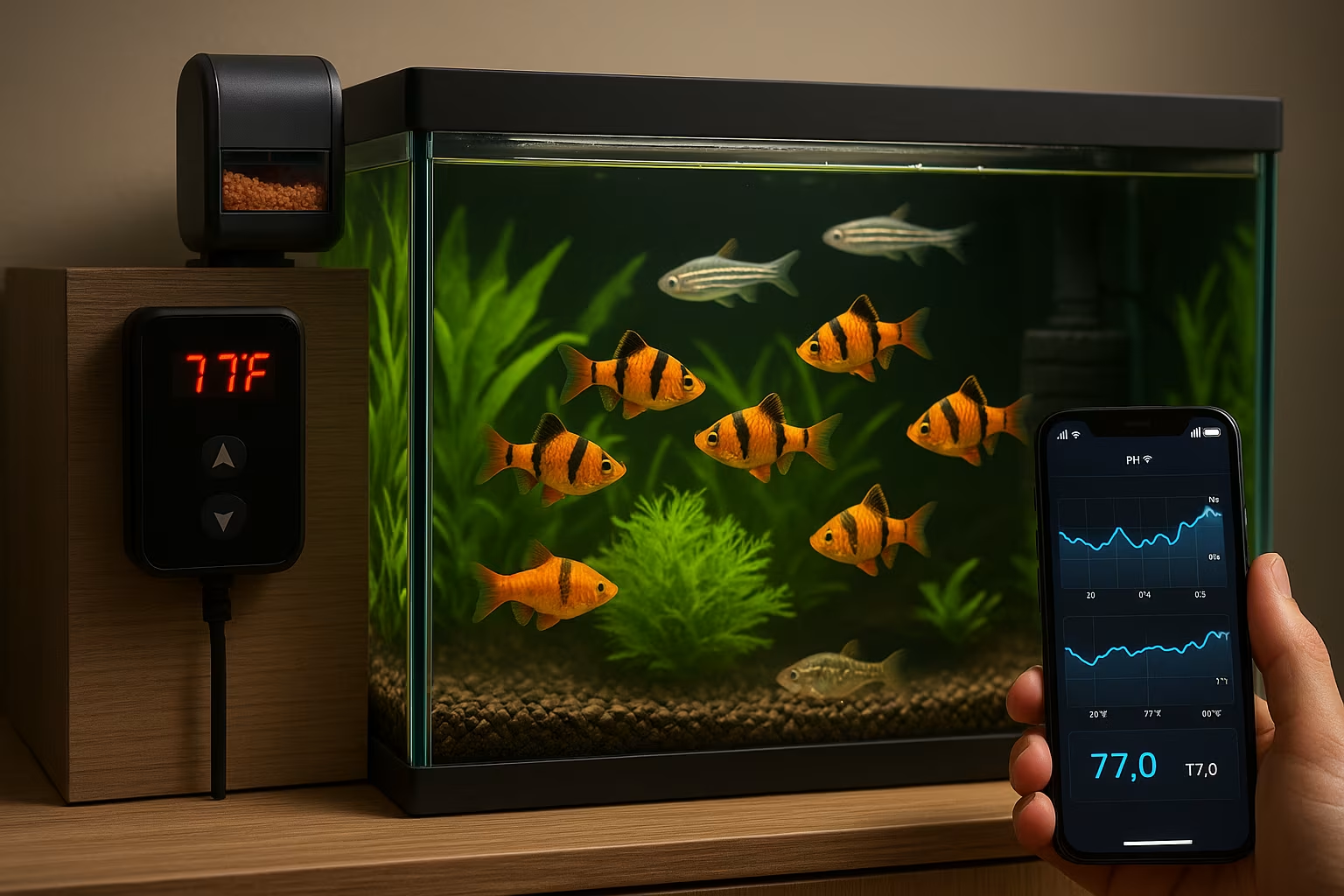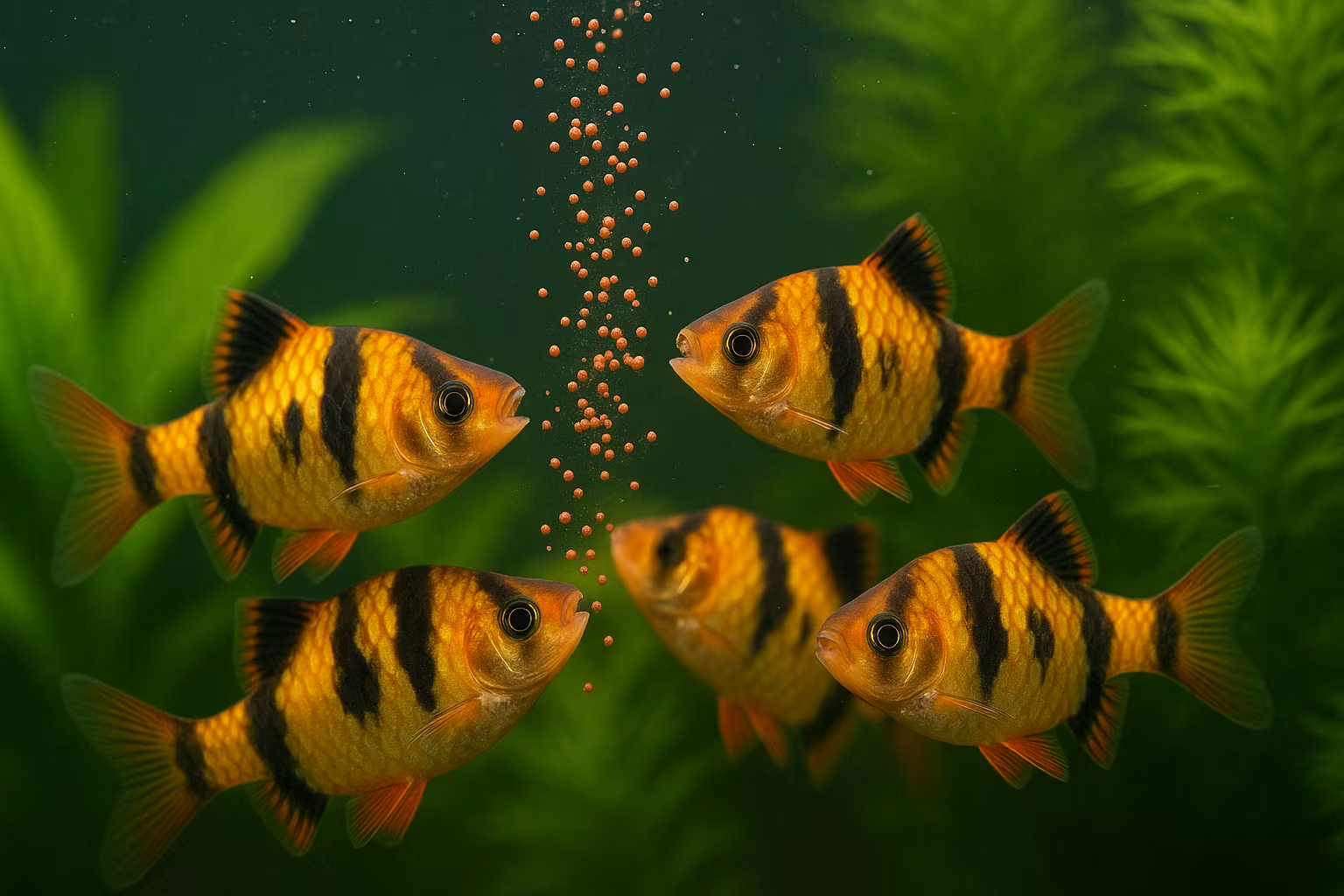

Color and activity come from what you put in the tank, not just the fish’s genetics. A varied, nutrient-dense menu strengthens immunity, keeps fins intact, and shows off those deep orange hues.
| Food type | Form | Benefits | How often |
|---|---|---|---|
| Quality micro-pellets (38–42 % protein) | Sinks slowly | Complete nutrition, less waste than flakes | Twice daily |
| Fine flakes (spirulina-based) | Floats | Adds plant protein and carotenoids | Swap for one pellet meal, 3× week |
| Frozen brine shrimp | Thaws quickly | Natural carotene for color | 2× week |
| Frozen daphnia | Tiny crustaceans | Gentle laxative, avoids bloating | 1× week |
Tip: Alternate brands. Each has a slightly different vitamin profile, so rotation fills gaps.
Rule of thumb: Offer what the group finishes in 90 seconds.
Use a small pinch, wait a minute, add more only if they clear it.
Uneaten food sinks, breaks down, and spikes ammonia. If pellets reach the substrate untouched, you overfed.
Treats keep fish engaged but can stress filters if overdone.
| Treat | Max frequency | Serving note |
|---|---|---|
| Bloodworms (frozen) | Once a week | Rinse in a net to shed excess phosphate |
| Blanched spinach or zucchini | Once a week | Clip to glass for one hour, then remove |
| Live mosquito larvae (if legal locally) | Once every two weeks | Quarantine source water to avoid pathogens |
Stick to the schedule. Random handouts lead to protein overload and oily film on the surface.
Feed 10 minutes after lights turn on; barbs need time to shake off night-time torpor.
Give a second meal about six hours later.
Skip feeding on water-change day; the barbs will graze on biofilm and micro-organisms, letting you siphon with far less debris in suspension.
Automatic feeders work, but many dump too much food. Do a trial run mid-week: set the dial, watch the output, and adjust downward until the 90-second rule still holds. For absences longer than four days, enlist a friend with a pre-measured pill organizer—one compartment per feeding.
| Sign | Likely cause | Fix |
|---|---|---|
| Fish spit and re-chew pellets | Pellets too large or too hard | Soak pellets in tank water for 30 sec, or buy “micro” size |
| Cloudy water within hours | Overfeeding | Reduce portion by 30 %, add a fine-pore sponge sleeve to filter |
| Pale stripes after a week | Diet lacks carotenoids | Increase spirulina flakes or brine shrimp; check water quality too |
Consistent portions, varied ingredients, and a simple schedule let Golden Tigers reach full size, flash deep color, and stay disease-resistant. Avoid treating food like decoration—measure it like any livestock expense, and the payoff shows in every photogenic pass across the tank.
Next time, Article 3 covers choosing compatible tank mates that won’t chase or out-compete your barbs.
Restock alerts, care tips, and the occasional coupon one email a month, unsubscribe anytime.